
Haruna Ito
Haruna Ito is a sonic and verbal poet who utilizes noise, both aural and literary, in the creation of evocative and unsettling landscapes. Born in industrial Kawasaki, Japan, haruna moved to the United States at the age of three and lived there until age thirteen, where she absorbed the popular culture of the time, showing a particular interest in music from a very young age. With her experiences of living as a child of foreigners in America with its various prejudices, and again upon returning to Japan, as a social aberration who neither spoke nor read her native language, themes of dislocation and exile resonated in her early on, and still remain an integral motivation for her work. During her teenage years in Japan her fury found outlet in a number of bands (for which she wrote, sang, and occasionally damaged the bass guitar), fuelled by the typified anguish of the post-punk, new wave climate of the time. However, upon finishing school and “entering society” as it is called in Japan, haruna soon discovered that culture shock is not a momentary impact that passes, as the term would imply, but is in fact a prolonged situation, a chronic ailment of displacement recurring time after time, whether she was in America, Japan. or elsewhere. Dissatisfied and bored with guitar band music now, she quit playing in order to find something with more personal relevance. A need to get a grasp of the mechanisms and workings of language upon identity and memory (as well as frustration at the alienation she continued to feel from language), led her to become a translator, a pursuit she continues today. Meanwhile, a budding interest in sampling as a new method of [post-self-] expression led her to work with turntablist and acclaimed composer/improviser Otomo Yoshihide. haruna served as producer and coordinator for his various projects during the mid to late nineties, producing or co-producing four albums by his band Ground-Zero, up to the group's annihilation with the "Consume Ground-Zero" series. Following the demise of Ground-Zero, haruna returned to creating music with the formation of Skist, a duo with sound-creator, percussionist and singer-songwriter Samm Bennett, expatriate of the downtown New York scene. In Skist, haruna brings singing-- and words, and meaning-- to the fore, while Samm explores the diversification and development of sonic and rhythmic possibility, noticeably going against the current of ultra-minimalism and its self-imposed rigidity so prevalent in the Japanese underground scene today. Currently, haruna utilizes electronic feedback and interference to generate the sonic material for her work, which she then processes and stores as samples for employing as components of compositions and performances. While sharing little with the Japanese avant-garde genre of the same name, she nonetheless terms her work "noise" for the intent and desire behind her sounds and words to incite unease and provoke questioning.

Turntable Solos
Various
1999
Amoebic
CD, Comp
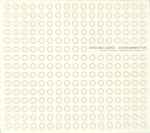
Consummation
Ground-Zero*
1998
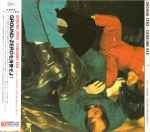
Consume Red
Ground-Zero*
1997
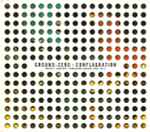
Conflagration (Project: Consume / Consuming Ground Zero Vol. 2)
Ground-Zero*
1997
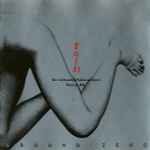
Revolutionary Pekinese Opera Ver.1.28
Ground-Zero*
1996
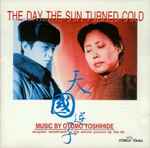
The Day The Sun Turned Cold
Otomo Yoshihide
1994
Milan Asia
CD, Album, Comp

Mitochondria
Akira Sakata & Takeo Moriyama
2022

ライブ・アト・ニヒル牛 = Live At Nihirugyu (Final Cut)
佐藤幸雄*
2019
Telegraph Records
CD, Album

Lonely Woman
ONJT +*
2010
Doubtmusic
CD

Bells
ONJT +*
2010
Doubtmusic
CD, Album

Complete Grüne Revolution
Keiki Midorikawa
2009

Live Vol. 1 Series Circuit
ONJO*
2007
Doubtmusic
2xCD, Album

Taking Something Somewhere
Skist
2006
Polarity Records
CD, Album

Out To Lunch
Otomo Yoshihide's New Jazz Orchestra
2005
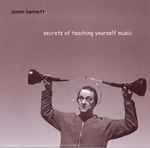
Secrets Of Teaching Yourself Music
Samm Bennett
2004
Improvised Music From Japan
CD, Album

Melatonin: Meditations On Sound In Sleep
Various
2004
Room40
2xCD, Comp
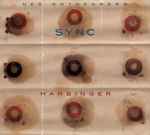
Harbinger
Ned Rothenberg's Sync*
2004
Animul Records
CD, Album

Decisive Action
Ned Rothenberg, Satoh Masahiko*
2004
BAJ Records
CD, Album

Funny Rat
Peter Brötzmann / Shoji Hano*
2003

Ancient & Modern (Cassette Memories Vol. 1)
Aki Onda
2003

Bon Voyage! (Cassette Memories Vol. 2)
Aki Onda
2003

Deluxe Improvisation Festival 2001: Day One
Various
2002
ASE (2)
CDr, Comp, Ltd

Festival Beyond Innocence: A Brief History In 67 Chapters
Various
2002
FBI Disc
4xCD, Comp
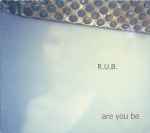
Are You Be
R.U.B.
2002
Animul Records
CD, Album

Over That Way
Koichi Makigami* & Ryoji Hojito
2002
Long Arms Records
CD, Album
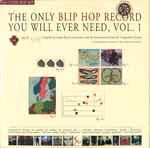
The Only Blip Hop Record You Will Ever Need, Vol. 1
Various
2002

Precious Moments
Aki Onda
2001
Softlmusic
CD, Album

Improvised Music From Japan
Various
2001
Improvised Music From Japan
10xCD + Box, Ltd, Num

With Russia From Love
Leonid Soybelman // Sachiko M // Otomo Yoshihide // Umezu Kazutoki* // Yoshigaki Yasuhiro*
2001
No Man's Land
CD, EP
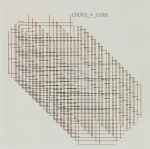
Clicks_+_Cuts
Various
2000

Paradise Of Replica / Paradise Of Remixes
After Dinner
2000
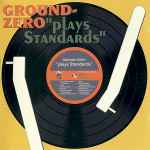
Plays Standards
Ground-Zero*
2000
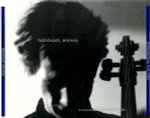
Hallelujah, Anyway- Remembering Tom Cora
Various
1999

Tune In, Turn On, Free Tibet
Ghost (2)
1999

Double Agent(s) Live In Japan Volume Two
Charles Hayward
1998
Locus Solus
CD, Album

My Dear Mummy: Miira Ni Narumade
Shimada Masahiko* / Otomo Yoshihide
1997
Creativeman Disc.
CD, Album

Happy Mail
Hoahio
1997
Amoebic
CD, Album

Worry Petty & Blouson Jet
Kingjoe
1996
B-Low Records
CD, Album

Tornado Shaman
Kingjoe
1996
Creativeman Disc., Double Trap
CD, Album

How Can We Kill Time?
Tsuguto Tsunoda
1996
Not On Label (Tsuguto Tsunoda Self-Released)
Cass, Album, C30

Waltz = ワルツ
Betsuni Nanmo Klezmer
1996

Ahiru = アヒル
Betsuni Nanmo Klezmer
1996

Tatakiuri
Jon Rose - Otomo Yoshihide
1995
Sank-Ohso Discs, Creativeman Disc.
CD, Album

The Night Before The Death Of The Sampling Virus
Otomo Yoshihide
1993
Extreme
CD, Album
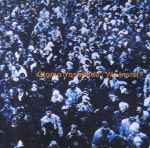
We Insist?
Otomo Yoshihide
1992

Evening At Room40
Various
2006
Wire Magazine, Room40
CD, Comp, Promo
Excavation
Haruna Ito
grainbugs
Haruna Ito
pinspk
Haruna Ito
shpfb
Haruna Ito
Untitled
Haruna Ito
